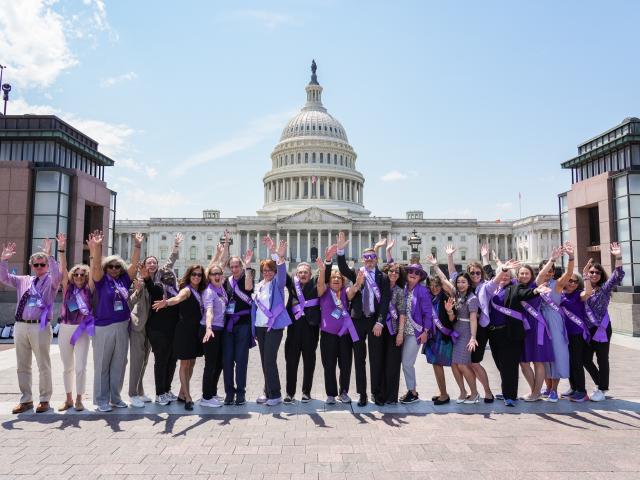WASHINGTON, D.C., June 7, 2016 - Today, the Senate Labor, Health and Human Services (Labor-HHS) Appropriations Subcommittee demonstrated steadfast leadership by not only approving an unprecedented $400 million increase in NIH funding for Alzheimer's disease research but also incorporating key components of the Health Outcomes, Planning, and Education (HOPE) for Alzheimer's Act (S. 857) into its funding bill.
Consistent with the National Plan to Address Alzheimer's Disease, the HOPE for Alzheimer's Act would increase access to information on care and support for newly diagnosed individuals and their families - providing essential support for those facing this devastating, debilitating disease. AIM and the Alzheimer's Association have supported this legislation since it was first introduced by Senators Stabenow (D-MI) and Collins (R-ME).
"The bipartisan leadership shown by Senator Stabenow and Senator Collins means millions of Americans impacted by Alzheimer's disease will receive critical care planning services, making a devastating diagnosis more manageable," said Robert Egge, Executive Director of AIM. "AIM commends Senator Blunt and Senator Murray for incorporating this foundational Alzheimer's care and support provision into today's funding bill."
Today, more than 5 million Americans are living with Alzheimer's disease, which is the only leading cause of death among the top 10 in the U.S. without a way to prevent, cure or even slow its progression. At an annual cost to taxpayers of $236 billion, Alzheimer's is the most expensive disease in the country. Leading experts have stated that a ramp up to $2 billion a year research funding is necessary to meet the primary goal of the National Alzheimer's Plan to prevent and effectively treat Alzheimer's disease by 2025.
